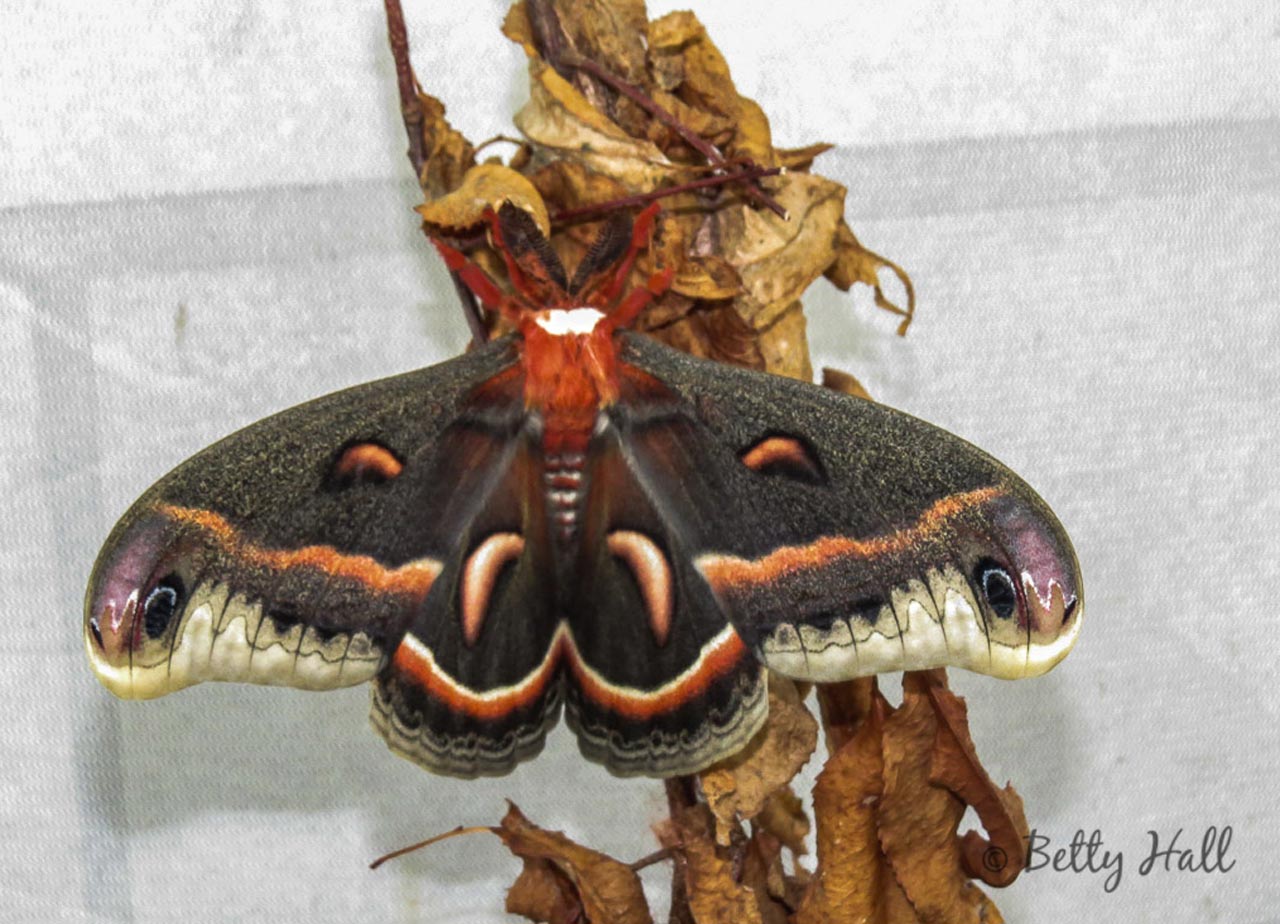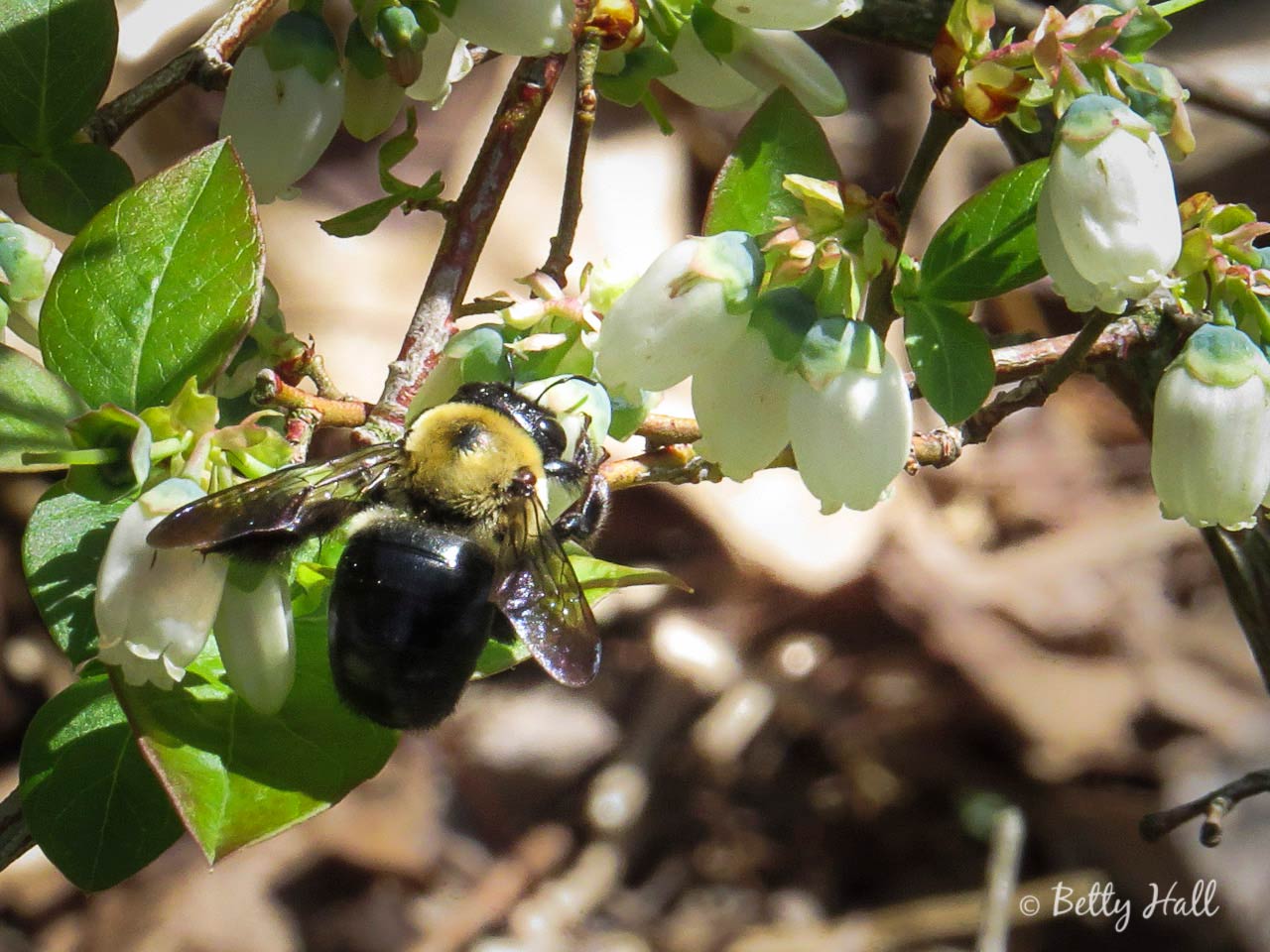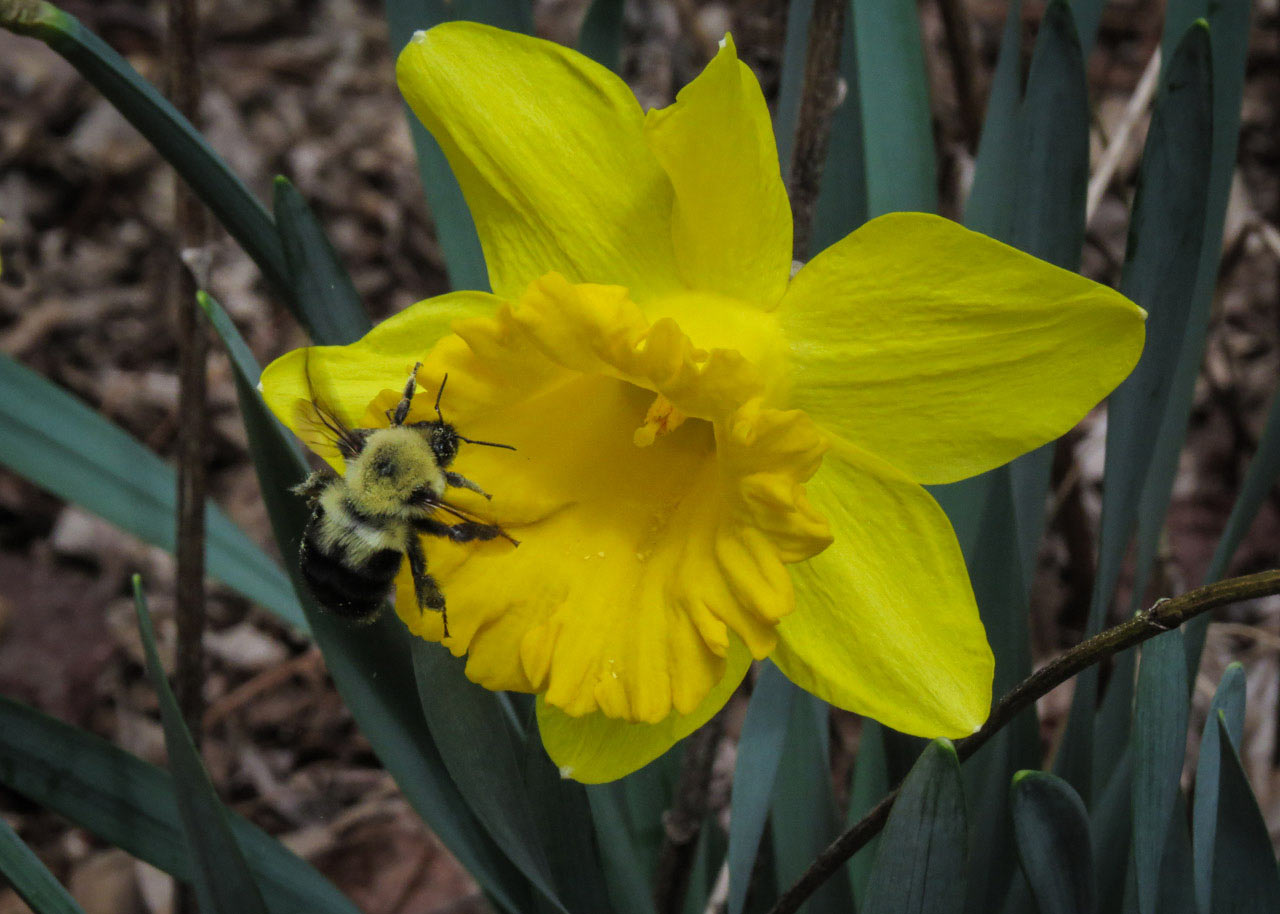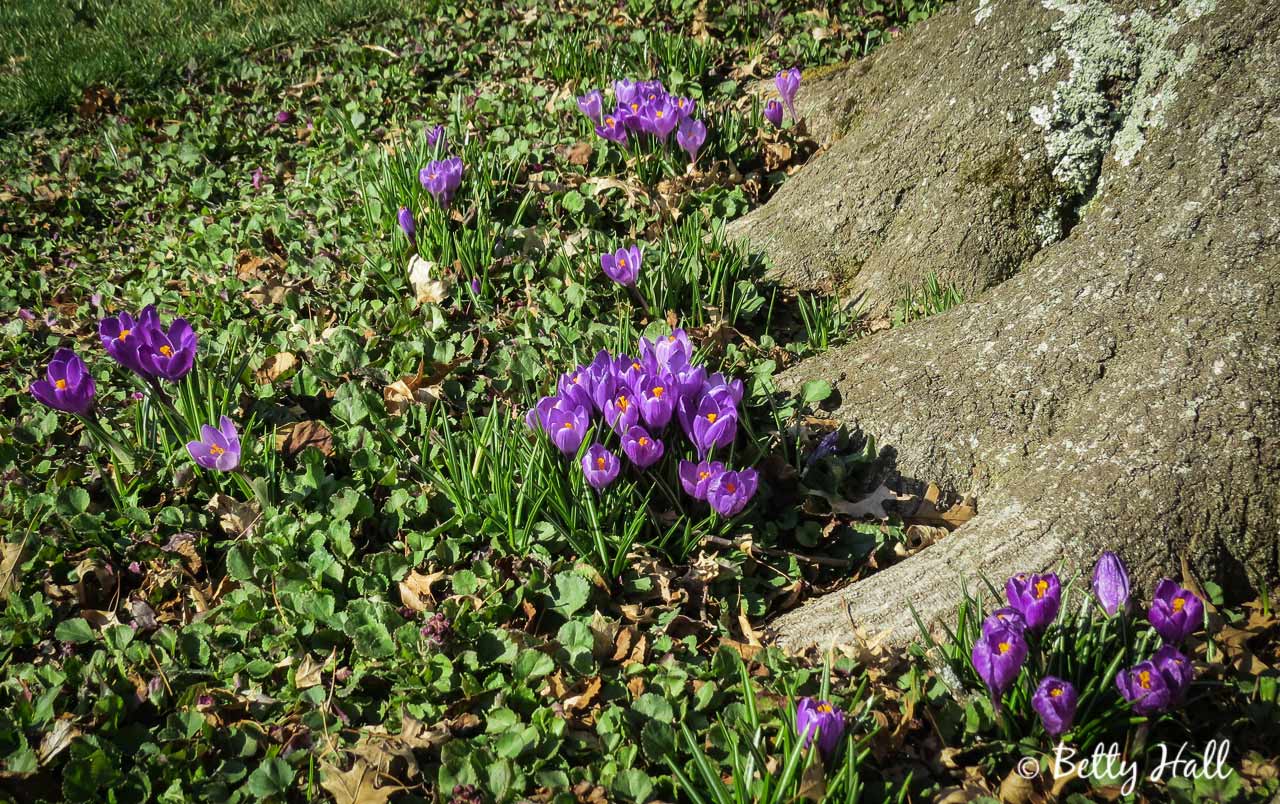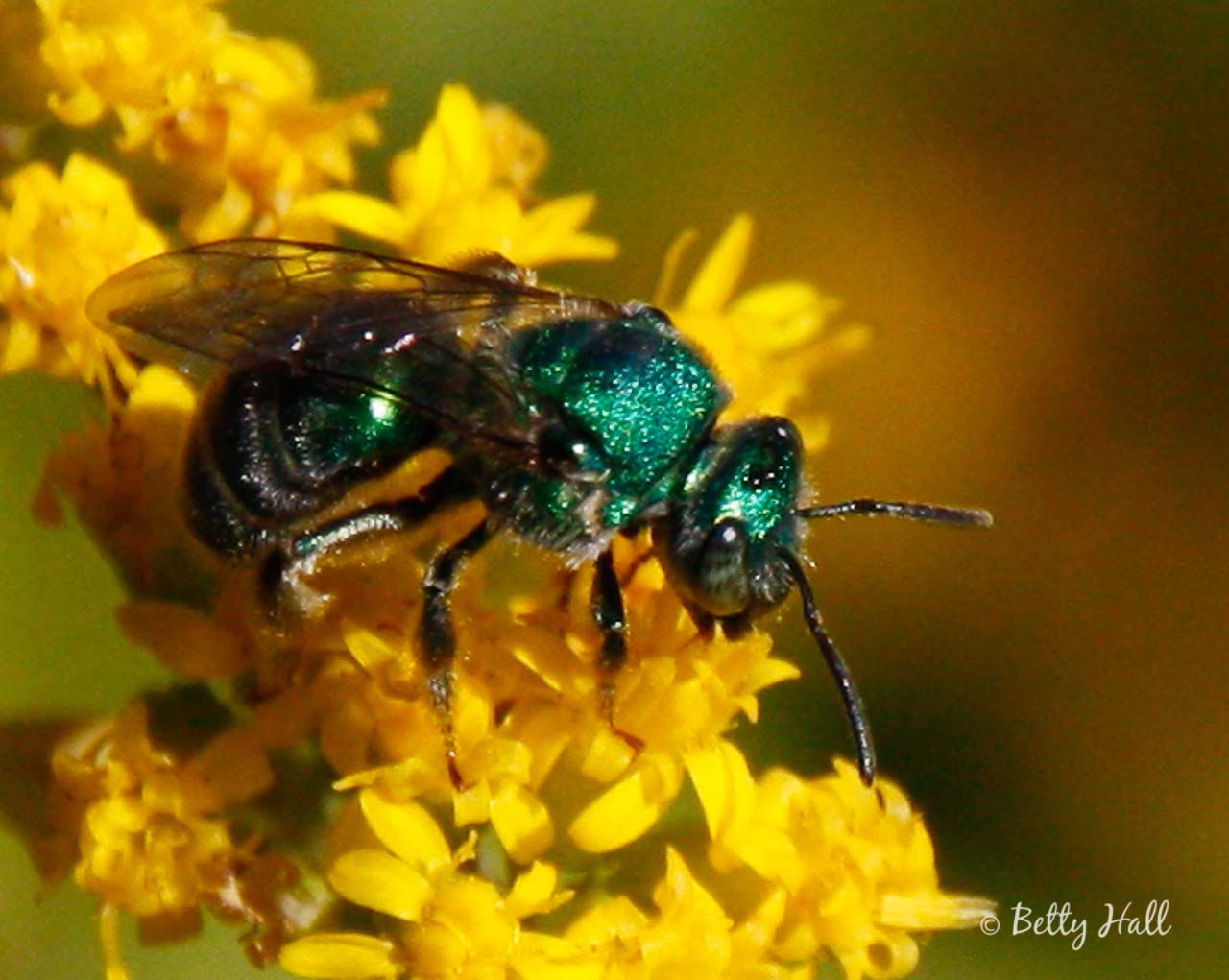Our Cecropia story began in 2012 when an injured moth laid eggs. Caterpillars from those eggs overwintered as cocoons, and emerged as moths last spring. One of those moths mated and laid eggs. The caterpillars grew and made cocoons that I left outside all winter. I was delighted to recently discover that this third generation moth had emerged.
Category: Critters
Bees, butterflies, and birds
It’s good to watch to watch plants coming to life again, and I’m also glad to see more wildlife. I’m seeing more bees – large and small. I can’t identify most of them, but I can usually spot Carpenter bees (Xylocopa spp.). I learned recently they’re not bumble bees, although they certainly look similar. Carpenter bees have a shiny black abdomen, and are often referred to as the bee with a ‘shiny butt’. This one was getting nectar by puncturing blueberry blossoms.
A queen in the backyard!
I like bumble bees. Their fuzzy bodies remind me of miniature teddy bear, and they move slowly enough that I can easily watch them. I was thrilled recently to see this large bumble bee visiting one of our daffodil blossoms. I suspected it was a queen, since I’ve learned that only fertilized queen bumble bees hibernate and survive the winter. They are the first to appear in spring as they prepare to establish a new colony.
More crocuses and pollinators
I planted this bed of crocuses thirty years ago, and they’ve announced spring’s arrival every year since. They are surrounded by golden ragwort, which provides a ground cover around the base of our large pin oak tree.
It was a sweat bee!
The response to last week’s blog post prompted me to send the photographs to BugGuide for identification. I now know the pollinator was a sweat bee, specifically Halictidae lasioglossum. I’ve learned there are many species of sweat bees. Many are dark black or brown, but some are quite colorful. I saw this one (Halictidae agapostemon) in our backyard a few years ago.
I’ve also seen this one (Augochloropsis metallica). It reminds me of a jewel – maybe a flying emerald?

